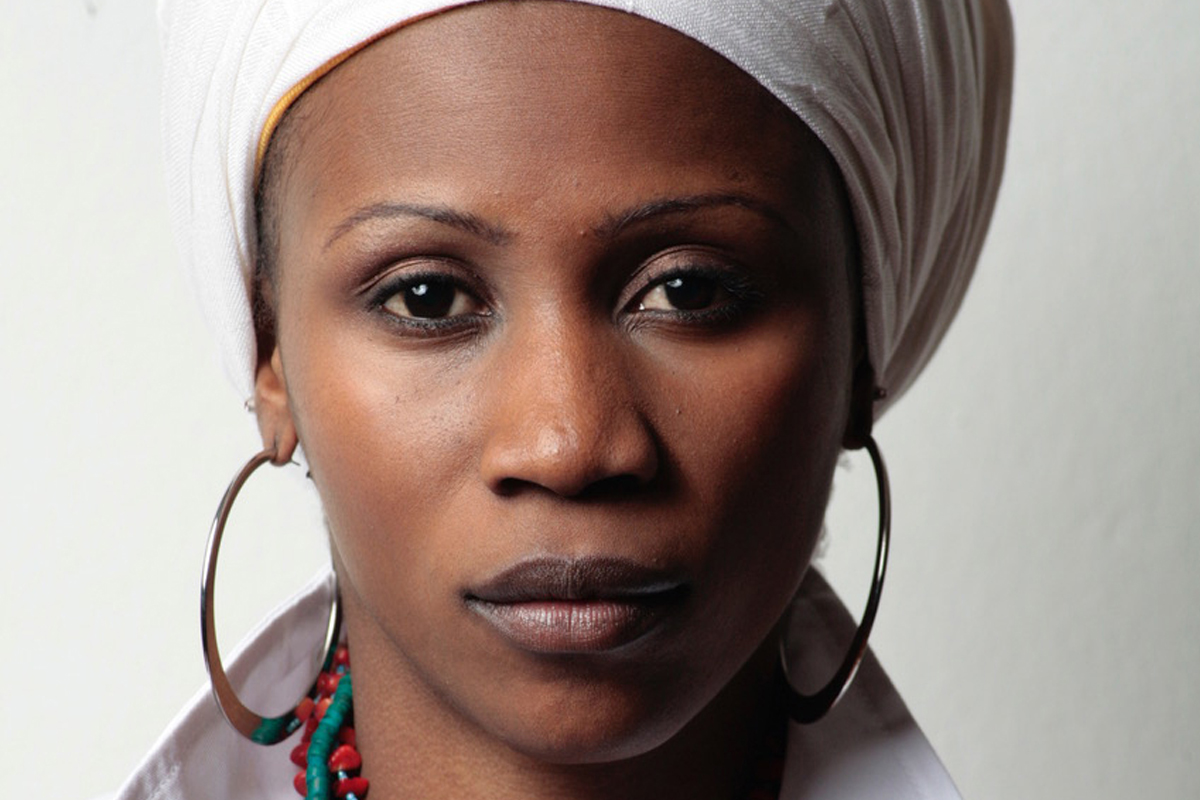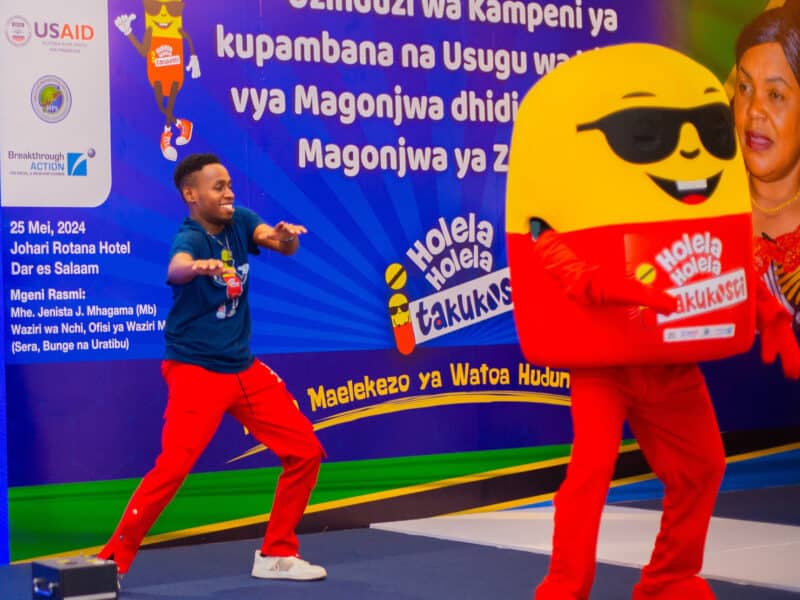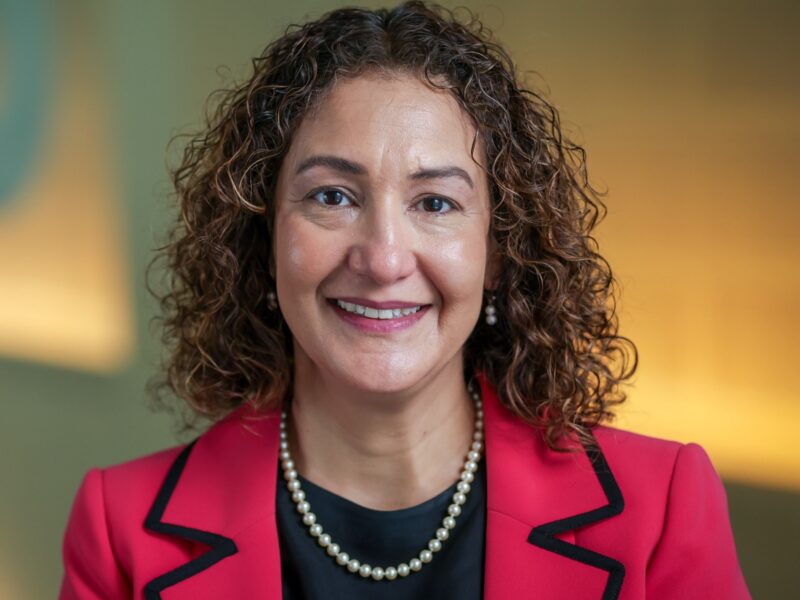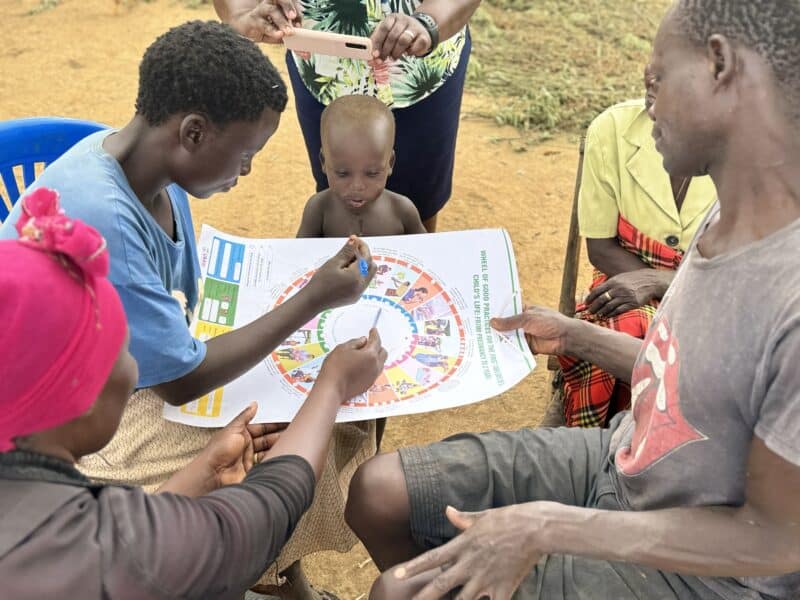Born Fatou Diatta, rapper Sister Fa made her debut on the rap scene in her native Senegal in 2000 at the age of 18. Today, she uses her popularity and music to create social awareness around topics she is passionate about: gender equity, child marriage and the fight against female genital mutilation (FGM), topping the list.
The 36-year-old, who is scheduled to be one of the keynote speakers at the Johns Hopkins Center for Communication Programs-organized Francophone Social and Behavior Change Summit in Abidjan, Cote d’Ivoire from Feb. 25 through 27, is both activist and musician.
She has performed in music festivals in Africa, Europe and the United States, while also participating in events sponsored by the United Nations and UNICEF. As part of her Education Without Excision project, Sister Fa tours each year with her group across Senegal to spark discussion about the dangers of female circumcision. She is collaborating with organizations Tostan, World Vision, and Orchid Project to end the practice of FGM, and has helped launch a project with the African Union and African governments to eradicate child marriage.
“When you are circumcised, you feel like an incomplete woman,” she told Al Jazeera in 2015. “It has been very difficult for me. I felt mutilated, as if somebody had cut off my ear or my finger.”
Sister Fa has traveled to 34 countries to make her voice heard in the fight against female genital mutilation and child marriage, and is a frequent guest on television channels such as CNN and the BBC. More recently, Sister Fa worked with the Swiss NGO IAMANEH on a pilot project to improve the lives of young girls in four villages in the Casamance region of Senegal.
She recently took the time to answer some questions about her work, her life and her message.
CCP: You started out as a rapper in Senegal and now you’re an activist. How did that evolution occur?
Sister Fa: The lyrics I wrote in the past were very cause-oriented. They denounced the social injustices that women suffer in my community. I had started to denounce female genital mutilation, but in a subtle way because I was afraid of retaliation. In 2005, when I went to Berlin, I started singing the story of when I was cut. As a result, I told myself that I must have to take on the fight for human rights and protection of women.
CCP: It must be quite a different experience to perform in clubs and perform before the UN. How have those experiences informed one another?
Sister Fa: Indeed. In Senegal, I play in festivals often and also in clubs. Being the first Senegalese rapper artist to perform at the United Nations was the dream of a young girl who was looking for recognition of her talent by dodging the gender-based obstacle for hip-hop music in Senegal, which was music for men. At the United Nations, I brought the fight against female genital mutilation to another decision-making audience. It was an unforgettable experience!
CCP: Your mission seems to be to educate as well as entertain. How do you accomplish both things at once?
Sister Fa: Hip-hop music started out as a protest. Rap was the only music I could use to speak for those who didn’t have a voice. Most of my lyrics were socio-political from the beginning. Later, hip-hop music became what it is now, but for me, rap remains a means of communication that can entertain and raise awareness at the same time.
CCP: A lot of your work focuses on ending early marriage and female genital mutilation, and empowering girls and women in society. These can be difficult topics to address at the social, religious and community level. What challenges have you encountered and what change have you seen as a result of your work?
Sister Fa: My work is based on the eradication of female genital mutilation, early and forced marriages, school pregnancies [while supporting] education and the empowerment of girls. These were very difficult subjects at the time I started in 2005.
Women’s struggle for equality and protection is a very dangerous subject in some communities. In 2013, I was attacked in the St. Louis area of Aéré Lao [in Senegal]. I always carry my scar on my hand. It was the men of the caliphate, who had spread terror in the school where my activities were taking place.
A letter of commitment to fight these problems has been written and signed by the mayors of Dialambere, Dabo and Coumbacara. The letter was delivered to the governor in front of the communities in the form of a declaration in partnership with the World Vision organization in the Kolda region where 94 percent of girls are cut.
Between July and November, we conducted a pilot project in four villages Thiobon, Tendouck, Mlompe and Thionck Essyl. We formed youth clubs, in partnership with the NGO IAMANEH Switzerland, that adopted more than 200 babies with the help of health authorities to ensure that girls would not be victims of FGM in the cradle.
CCP: At the Summit in Abidjan, you will be addressing a group of people whose passion is changing social norms and inspiring healthy behaviors. What advice can you share from your experiences?
Sister Fa: It is first of all an honor for me to participate. The advice I will give on this occasion is: change must happen inside! Let’s take the example of the egg: If you break the shell from the outside, you destroy a life, whereas when it breaks from the inside, it is a sign of a life that is beginning! Let us train communities and involve them in the design of our projects.
This interview has been slightly condensed, lightly edited and translated from French.





